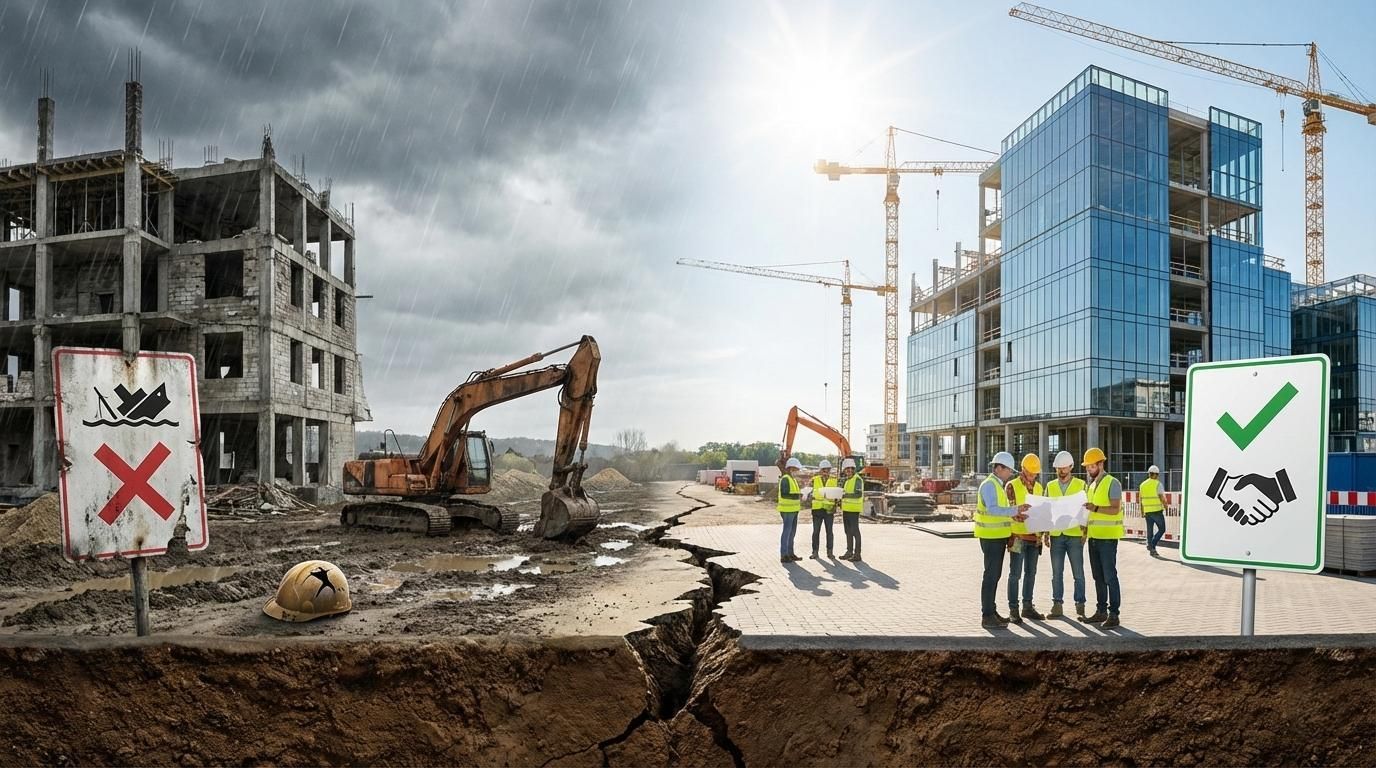Top Mistakes to Avoid When Estimating Project Costs

Relying on Incomplete or Inaccurate Data
One of the biggest mistakes you can make is basing your estimates on incomplete or outdated information. Missing key details, like labor rates or material costs, creates gaps that can throw off your entire budget.
For example, forgetting to include indirect costs like
permits, equipment maintenance, or insurance can leave you scrambling to make up for the shortfall later.
To avoid this, make sure you gather comprehensive, up-to-date data before creating your estimate. Break down every element of the project and double-check your numbers to ensure nothing gets overlooked.
The more precise your data, the more reliable your estimate will be.
Ignoring Project-Specific Variables
Another common error is treating every project the same. While it might seem efficient to use a standard formula for your estimates, failing to account for the unique aspects of each project can lead to costly surprises. Site conditions, material availability, and labor requirements can vary significantly from one job to the next.
Before you start estimating project costs, take the time to analyze the specific details of the project. For instance, does the location present logistical challenges? Are there specialized materials or equipment needed?
By tailoring your estimates to the specific scope of work, you’ll set more accurate expectations and avoid unexpected expenses.
Underestimating Contingencies and Risks
It’s easy to overlook the “what ifs” when you’re focused on hitting targets and staying competitive. But failing to account for contingencies and risks can put you in a tough spot when things don’t go as planned.
Unanticipated weather delays, material shortages, or equipment breakdowns are just a few examples of risks that can derail your budget.
The solution?
Always include contingency buffers in your estimates. A good rule of thumb is to set aside a percentage of the total cost to cover unforeseen events. By factoring in potential risks from the start, you’ll reduce financial stress and ensure your project stays on track, even when challenges arise.
Failing to Involve Key Stakeholders
Another pitfall is working in isolation during the estimation process. If you don’t collaborate with key stakeholders, you risk missing important insights or misinterpreting project requirements.
Miscommunication between project managers, contractors, and clients often leads to overlooked details and inaccurate estimates.
To prevent this, involve all relevant parties early in the process. Talk with your team to identify potential challenges and clarify expectations. Also, think about hiring a
construction consultant who will help you keep track of all the possible costs and risks.
By fostering open communication, you’ll create a more complete and realistic estimate that aligns with everyone’s goals.
Plan Smart, Estimate Smarter
Avoiding these common mistakes when estimating project costs can make a huge difference in your project’s success. By using complete data, accounting for project-specific variables, preparing for risks, and collaborating with stakeholders, you can create estimates that keep your budget and timeline intact.
If you’re ready to take your estimating process to the next level, we can help.
At
Pro-Accel, we provide expert guidance to help you refine your methods, avoid costly errors, and achieve better outcomes for every project.
Contact us today to start working smarter!




